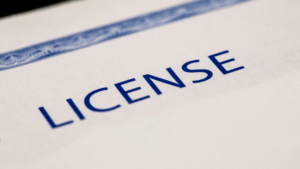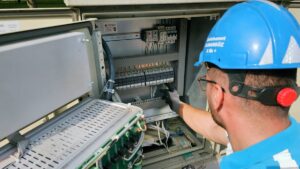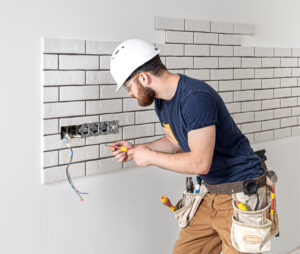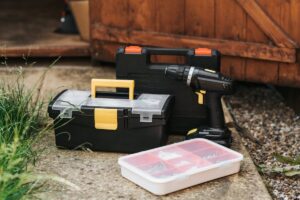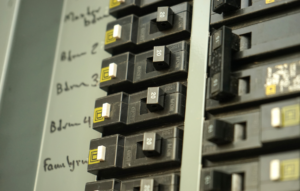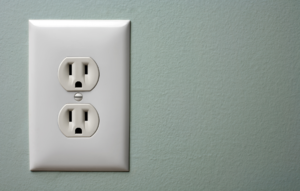Electrical systems are the backbone of modern living, powering our homes, offices, and businesses. In states like Alabama and Georgia, where CMS Maintenance Service operates, ensuring the reliability and safety of these systems is crucial. Regular electrical maintenance is an often-overlooked aspect of home and business upkeep that can have significant benefits. This comprehensive guide delves into the importance of regular electrical maintenance, its benefits, and practical tips to keep your electrical systems in top condition.
Understanding Electrical Maintenance
Electrical maintenance involves the routine inspection, testing, and repair of electrical systems and components. It includes tasks such as checking wiring, outlets, circuit breakers, and electrical panels to ensure they are functioning correctly and safely. Maintenance can be preventative, aimed at avoiding future issues, or corrective, addressing existing problems.
Why Regular Electrical Maintenance is Crucial
- Safety First
- Faulty electrical systems can lead to fires, electric shocks, and other hazardous situations. Regular maintenance helps identify and rectify potential dangers before they cause harm.
- Preventative Measures
- Regular inspections can detect issues such as frayed wires, overloaded circuits, and faulty connections early. Addressing these problems promptly can prevent costly repairs and dangerous situations.
- Cost Savings
- While maintenance has an upfront cost, it can save money in the long run by preventing expensive emergency repairs and extending the lifespan of electrical systems.
- Energy Efficiency
- Well-maintained electrical systems run more efficiently, reducing energy consumption and lowering utility bills. This is particularly beneficial for businesses with high energy demands.
- Compliance with Regulations
- Adhering to local, state, and national electrical codes and standards is essential. Regular maintenance ensures compliance, avoiding potential fines and legal issues.
- Improved Performance
- Regularly maintained systems perform better, providing consistent power supply and reducing the risk of unexpected outages.
Key Components of Electrical Maintenance
- Wiring and Cables
- Inspect for signs of wear and tear, fraying, or damage. Replace any compromised wiring to prevent short circuits and fires.
- Outlets and Switches
- Check for loose connections, discoloration, or unusual sounds. Faulty outlets and switches should be repaired or replaced immediately.
- Circuit Breakers and Fuses
- Ensure circuit breakers and fuses are functioning correctly. Regularly test them to confirm they trip properly in case of an overload.
- Electrical Panels
- Inspect electrical panels for signs of corrosion, moisture, or overheating. Ensure all connections are secure and free from dust and debris.
- Lighting Systems
- Check lighting fixtures and bulbs for proper operation. Replace any burnt-out bulbs and clean fixtures to ensure optimal lighting.
- Grounding Systems
- Verify that grounding systems are intact and functioning. Proper grounding is essential for electrical safety and preventing shocks.
Steps to Conduct Regular Electrical Maintenance
- Schedule Routine Inspections
- Set up a maintenance schedule with a professional electrician. Regular inspections, typically annually or biannually, are recommended.
- Perform Visual Inspections
- Conduct regular visual checks of your electrical system for any obvious signs of damage or wear. Look for discolored outlets, exposed wires, and flickering lights.
- Test Safety Devices
- Regularly test smoke detectors, carbon monoxide detectors, and ground fault circuit interrupters (GFCIs) to ensure they are working correctly.
- Clean and Maintain Components
- Keep electrical panels, outlets, and appliances clean and free from dust and debris. Ensure ventilation around electrical equipment to prevent overheating.
- Address Minor Issues Promptly
- Don’t ignore minor electrical issues. Small problems can escalate quickly, so address them as soon as they are noticed.
- Hire a Licensed Electrician
- Always hire a licensed and experienced electrician for thorough inspections and repairs. Professional expertise ensures that maintenance is done safely and effectively.
The Role of Professional Electrical Services
- Expertise and Experience
- Professional electricians have the knowledge and experience to identify and fix issues that might be missed by untrained eyes.
- Advanced Tools and Equipment
- Professionals use specialized tools and equipment for accurate diagnosis and efficient repairs.
- Compliance with Codes
- Electricians ensure that all work is performed according to the latest electrical codes and standards, ensuring safety and legality.
- Comprehensive Services
- Professional services include a wide range of maintenance tasks, from simple repairs to complex system upgrades, providing a one-stop solution for all electrical needs.
- Emergency Services
- Many electrical service providers offer 24/7 emergency services, providing peace of mind that help is available when needed.
Benefits of Regular Electrical Maintenance for Homeowners
- Enhanced Safety
- Regular maintenance reduces the risk of electrical fires and accidents, protecting your home and family.
- Increased Property Value
- Well-maintained electrical systems can increase the value of your property, making it more attractive to potential buyers.
- Peace of Mind
- Knowing that your electrical system is in good condition provides peace of mind, reducing anxiety about potential issues.
- Energy Savings
- Efficient electrical systems consume less energy, leading to significant savings on energy bills over time.
- Longevity of Appliances
- Proper maintenance ensures that your electrical appliances run smoothly and last longer, reducing the need for frequent replacements.
Benefits of Regular Electrical Maintenance for Businesses
- Operational Efficiency
- Regular maintenance ensures that electrical systems support business operations without interruptions, enhancing productivity.
- Reduced Downtime
- Preventative maintenance minimizes the risk of unexpected outages, reducing downtime and associated costs.
- Cost Management
- Predictable maintenance costs are easier to manage than sudden, large repair bills, aiding in better financial planning.
- Compliance and Liability
- Regular maintenance ensures compliance with safety regulations, reducing the risk of fines and liability issues.
- Enhanced Reputation
- A well-maintained facility reflects positively on a business, enhancing its reputation and customer trust.
Practical Tips for Homeowners and Businesses
- Create a Maintenance Schedule
- Work with a professional to develop a regular maintenance schedule tailored to your specific needs.
- Educate Yourself and Staff
- Understand the basics of electrical systems and maintenance. Educate staff on safety practices and signs of potential issues.
- Keep Records
- Maintain detailed records of all maintenance activities, inspections, and repairs. This documentation can be invaluable for future reference and compliance.
- Invest in Quality Components
- Use high-quality electrical components and appliances. Investing in quality can reduce the need for frequent repairs and replacements.
- Stay Informed
- Keep up with the latest developments in electrical technology and safety standards. Staying informed helps you make better maintenance decisions.
Final Thoughts on the Importance of Electrical Maintenance
Regular electrical maintenance is a critical aspect of home and business management that should not be overlooked. By ensuring that electrical systems are regularly inspected, maintained, and updated, you can enhance safety, improve efficiency, and save money in the long run. Whether you’re a homeowner in Alabama or a business owner in Georgia, CMS Maintenance Service is here to provide expert electrical maintenance services tailored to your needs. Prioritize regular maintenance to enjoy the many benefits of a safe, efficient, and reliable electrical system.


